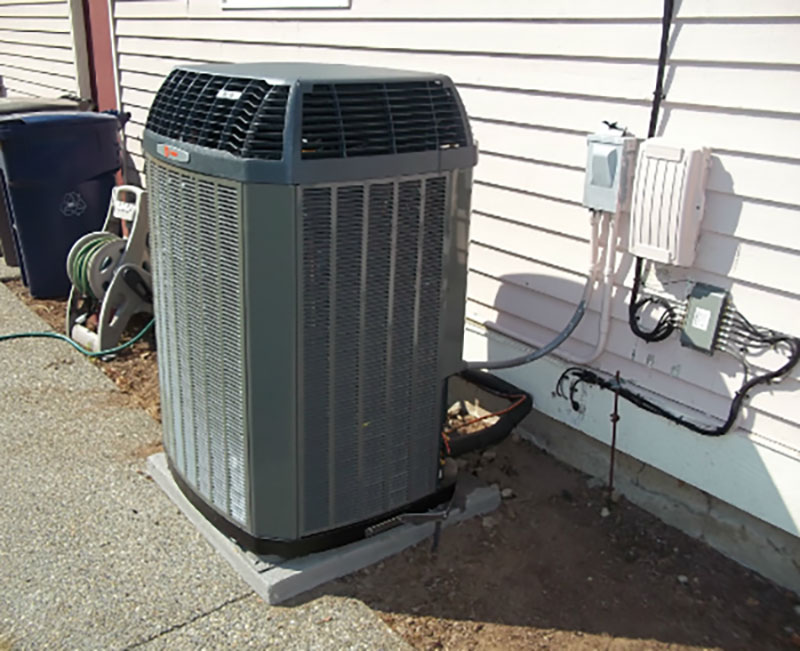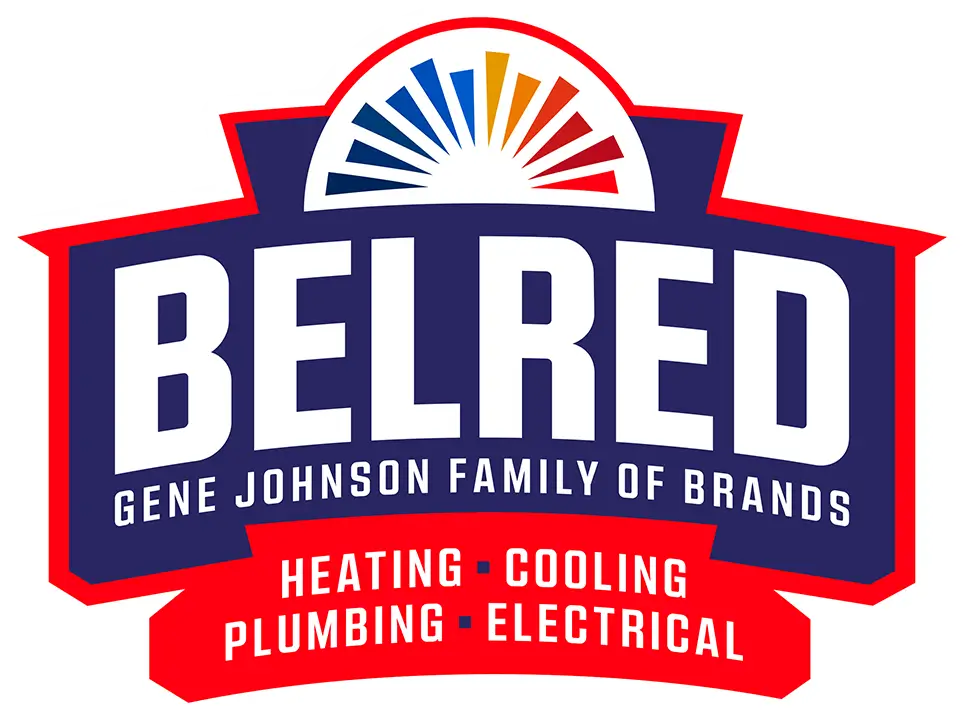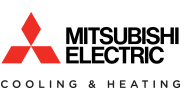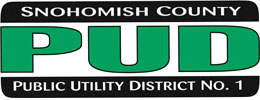When winter’s chill or summer’s heat bears down on Marysville, WA, your heat pump system works overtime to maintain comfortable indoor temperatures year-round. Since 1986, BelRed has been the trusted name in heat pump repairs across the Pacific Northwest, bringing warmth and reliability back to homes when these vital systems falter.
Our NATE-certified technicians understand that a malfunctioning heat pump isn’t just an inconvenience – it’s a disruption to your family’s comfort and safety. Whether you’re experiencing insufficient heating, strange noises, or complete system failure, our expert team leverages decades of experience and cutting-edge diagnostic tools to identify and resolve issues quickly and effectively.
As a proud authorized dealer of elite brands such as Trane and Rheem and a recipient of multiple HomeAdvisor Best Of awards, we stand behind our commitment to excellence with every repair. Our core values of integrity and innovation ensure you’ll receive honest recommendations and creative solutions tailored to your specific needs.

Don’t let heat pump problems leave you in the cold. Contact BelRed today at (855) 345-6161 to schedule your professional heat pump repair service!
(855) 345-6161BelRed’s Heat Pump Repair Process in Marysville, WA
Got a heat pump acting up or completely down? Our repair crews have seen it all since ’86, and we’ve developed a no-nonsense approach to getting these systems back up and running without the runaround. When you call BelRed, here’s what you can expect:
Thorough System Assessment
We start by getting our hands dirty – checking refrigerant levels, testing electrical connections, and putting eyes on every component from the compressor to that finicky reversing valve. No shortcuts here. We dig deep to find what’s really causing your heat pump grief, so you’re not paying for band-aid fixes that won’t last.
Advanced Diagnostic Tools
Sure, some companies might eyeball your system and make their best guess. Not us. Our trucks come loaded with specialized testing equipment that measures system pressures, electrical draws, and temperature splits. This tech helps us catch the sneaky problems that basic service calls often miss.
Expert Repairs and Quality Parts
After we’ve nailed down the culprit, we get to work with top-shelf replacement parts – the same stuff the manufacturers use. Whether it’s swapping out a worn sensor or rebuilding your compressor, we do it right the first time. No cheap parts, no cutting corners.
Performance Testing
Once the repairs are wrapped up, we run the system through its paces. Heat mode, cool mode, defrost cycles – everything gets checked off our list. If it’s not hitting our performance targets, we’re not done yet.
Looking for straight talk and solid heat pump or AC repairs in Marysville? Give us a ring at (855) 345-6161. We’ll show you why Marysville homeowners have trusted BelRed with their heat pumps for over 35 years.
Heat Pump Repair FAQ
- Why Is My Heat Pump Not Switching Between Heating and Cooling in Marysville, WA?
- What are the Most Common Heat Pump Problems Homeowners Face in Marysville?
- Why Is My Heat Pump Running Constantly, Even When the Temperature Feels Fine?
- What Should I Do if My Heat Pump Is Blowing Cold Air Instead of Heat?
- How Do I Know if My Heat Pump Issue Requires a Repair or a Full Replacement?
- Why Does My Heat Pump Freeze up Even When It’s Not That Cold Outside?
- How Does Marysville’s Humidity and Rainy Climate Affect Heat Pump Performance?
Why Is My Heat Pump Not Switching Between Heating and Cooling in Marysville, WA?
Up here in Marysville, we’ve seen countless homeowners puzzled when their heat pumps get stuck in one mode. It’s particularly troublesome during those seasonal transitions when you need both heating and cooling capabilities. While heat pumps are built to handle these switches smoothly, several issues can throw a wrench in the works.
The reversing valve often turns out to be the main troublemaker. This component does the heavy lifting when it comes to changing your system’s operation from heating to cooling or vice versa. Think of it like a traffic controller for your refrigerant – when it gets stuck, your heat pump can’t adapt to changing temperature needs. BelRed technicians frequently spot this issue during routine maintenance calls.
Sometimes the problem isn’t mechanical at all. Thermostat communication hiccups can make your heat pump seem broken when it’s really just not getting the right signals. We’ve found everything from loose wiring connections to outdated thermostats causing these communication breakdowns. It’s similar to having a bad cell phone connection – the message just isn’t getting through clearly.
Low refrigerant levels throw another curveball into the mix. Your heat pump needs the right amount of refrigerant to transfer heat effectively. When levels drop too low, the system might lock itself into one mode as a protective measure. During our service calls, we carefully check these levels using specialized gauges to ensure everything’s properly balanced.
The control board acts as your heat pump’s brain, coordinating all its functions. Like any computer, it can develop quirks over time that affect mode switching. Our team has dealt with countless control board issues, from minor programming glitches to complete board failures.
What makes these problems particularly tricky is that they often share similar symptoms. That’s why BelRed’s diagnostic process is so thorough – we need to rule out each possibility to pinpoint the exact cause. With the Pacific Northwest’s variable climate, having a fully functional heat pump isn’t just about comfort – it’s about maintaining a reliable, efficient heating and cooling system year-round.
What are the Most Common Heat Pump Problems Homeowners Face in Marysville?
Up here in Marysville, where our weather keeps us on our toes, heat pumps take quite a beating throughout the year. After working on countless systems since 1986, we’ve noticed some issues that pop up more often than others in local homes.
Ice buildup is a real headache during our wet, cold winters. Sure, heat pumps come with defrost features, but sometimes they just can’t keep up with our harsh weather. We’ve seen units completely frozen over, struggling to work efficiently, and putting extra strain on vital components. It’s like trying to run with boots full of water – everything just gets harder.
When it comes to noisy operation, heat pumps can get pretty vocal about their problems. Grinding sounds usually mean bearing issues, while rattling might point to loose parts. That high-pitched squealing? Often a cry for help from a struggling fan motor. These aren’t just annoying sounds – they’re your system’s way of saying something’s not right.
Short cycling drives many homeowners nuts, and we see it all the time. The system kicks on, runs briefly, shuts off, then starts the whole dance again a few minutes later. It’s usually tied to things like wrong system sizing, thermostat glitches, or refrigerant problems. Besides being annoying, it’s like stop-and-go traffic for your heat pump – wearing everything out faster and burning extra energy.
Temperature control issues are another common complaint in our area. Sometimes rooms just won’t get comfortable, no matter what the thermostat says. We often trace this back to dirty coils, airflow problems, or sneaky refrigerant leaks. Each case needs its own approach since no two homes are quite alike.
The electrical gremlins that plague heat pumps around here often catch folks off guard. Our power grid takes some hits during storms, and those surges can fry capacitors or burn out contactors without warning. These aren’t DIY fixes – they need proper diagnosis to prevent bigger headaches down the road.
Having fixed heat pumps across Marysville for over three decades, we’ve learned that catching these issues early makes all the difference. Regular maintenance helps head off many problems, but when things do go sideways, knowing what to look for helps us get systems back up and running quickly.
Why Is My Heat Pump Running Constantly, Even When the Temperature Feels Fine?
Up here in Marysville, we’ve noticed a trend of homeowners concerned about their heat pumps running non-stop. While these systems naturally run longer than traditional furnaces, there’s definitely a point where constant operation signals something isn’t quite right.
We often discover the root cause is simply that the equipment isn’t the right size for the home. It’s like trying to heat a warehouse with a space heater – the system just can’t keep up. But sizing isn’t just about square footage. Our local weather patterns, the amount of insulation in your walls, and even the number of windows in your home all affect how hard your heat pump needs to work.
Thermostat troubles are another common culprit we see. Sometimes, a heating system won’t stop running because the thermostat is placed near a drafty window. This can make it think the whole house is as cold as that one spot, causing it to keep running unnecessarily. Proper thermostat placement helps avoid this issue. These kinds of placement issues can really throw off your system’s operation.
Leaky ductwork is something we find all too often in older Marysville homes. When your treated air is escaping into the attic or crawl space, your heat pump has to work overtime to make up for the loss. It’s like trying to fill a bucket with a hole in it – you’re just wasting energy.
The Pacific Northwest’s pollen and debris can do a number on heat pump components too. Dirty coils and clogged filters force your system to run longer to achieve the same results. We’ve seen systems running constantly just because they’re gasping for air through layers of accumulated grime.
Low refrigerant levels often fly under the radar until you notice your heat pump never seems to take a break. This isn’t just an efficiency issue – running a system low on refrigerant can lead to serious damage down the line. That’s why we use specialized equipment to check these levels during every service call.
Sometimes what seems excessive is actually normal operation, especially during extreme weather. But if you’re noticing unusually long runtime during mild weather, it’s worth having a professional take a look. Most of these issues are pretty straightforward to fix once properly diagnosed.
What Should I Do if My Heat Pump Is Blowing Cold Air Instead of Heat?
Here in Marysville, we get plenty of calls from worried homeowners when their heat pumps seem to be blowing cold air. It’s a tricky situation because sometimes what feels wrong is actually your system working exactly as it should.
Let’s clear up a common misconception first. Heat pumps don’t blast out super-hot air like traditional furnaces do. They typically put out air around 90-95 degrees – warm enough to heat your home gradually, but it might feel cool if you’re standing right next to the vent. We’ve had plenty of customers surprised to learn this is completely normal.
The defrost cycle throws another wrinkle into the mix. Our damp winters mean heat pumps need to periodically melt ice off their outdoor units. During these brief cycles, you’ll feel cooler air coming through the vents. It’s just temporary, usually lasting only a few minutes. But if those cool spells stretch on longer, that’s when you might have a real problem on your hands.
When we get service calls for genuine cold air issues, we usually find one of these culprits:
- A stuck reversing valve that won’t switch to heating mode
- Refrigerant running low from a slow leak
- A compressor that’s struggling or failed
- Backup heat strips that aren’t kicking in when needed
- An outdoor unit that’s damaged or frozen solid
Your heat pump also has an emergency heat setting for those really cold snaps we sometimes get up here. If this backup isn’t engaging automatically when temperatures plummet, you might feel cold air when you shouldn’t. We can check those settings and make sure they’re properly tuned for our local climate.
The tricky part is figuring out whether your system’s behavior falls within normal operation or signals a real problem. That’s where professional diagnosis comes in handy – we can spot the difference between a normal defrost cycle and a system crying out for help.
How Do I Know if My Heat Pump Issue Requires a Repair or a Full Replacement?
Up here in Marysville, we’ve seen plenty of homeowners grapple with this tough decision. It’s not always clear-cut whether to invest in repairs or take the plunge on a new system. After working on heat pumps since 1986, we’ve learned a few key things that help guide this choice.
Let’s talk about age first. Heat pumps in our Pacific Northwest climate typically last about 12-15 years when well-maintained. If your unit’s getting up there in years, repair costs can start adding up quickly. We’ve watched newer models hit the market with efficiency ratings that make older units look like energy hogs – some operating up to 40% more efficiently than systems from just ten years ago.
Keep an eye on how often you’re calling for repairs. If you’re seeing us every few months for different issues, that’s usually a red flag. Think of it like an old car – there comes a point where the repair bills just don’t make sense anymore. We’ve noticed that once major components start failing, others often follow suit pretty quickly.
Here’s a practical tip we share with our customers: if a repair bill hits around half the cost of a new system, it’s probably time to think about replacement. But there’s more to consider than just that number. We look at things like:
- How much your current system costs to run each month
- Whether your home actually stays comfortable
- The condition of your ductwork
- What you’re spending on frequent repairs
Sometimes the decision becomes clearer when you’re dealing with ongoing comfort issues. We’ve seen plenty of cases where homes just never feel quite right – some rooms too hot, others too cold, or the system’s running constantly. Often these problems point to bigger issues that a simple repair won’t fix.
The environmental angle matters too. Modern heat pumps use updated refrigerants and smarter technology that’s easier on the planet. For many Marysville families, this becomes part of their decision-making process, especially when weighing long-term impacts.
Through decades of experience in local homes, we’ve learned that each situation needs its own careful evaluation. What makes sense for one household might not work for another, which is why we take the time to understand your specific circumstances before making any recommendations.
Why Does My Heat Pump Freeze up Even When It’s Not That Cold Outside?
Up here in Marysville, we’ve seen heat pumps ice over during some surprisingly mild days. While a bit of frost during winter is normal, seeing your outdoor unit wrapped in ice when temperatures are well above freezing usually means something’s not quite right.
Through years of service calls, we’ve found that airflow problems are often behind these mysterious freeze-ups. Sometimes it’s as simple as fallen leaves piling up against the unit, or filters that haven’t been changed since last season. Other times, we discover fan motors struggling to move enough air, or bushes that have grown too close to the equipment. Whatever the cause, restricted airflow can make your heat pump act like it’s in the middle of December even during a mild autumn day.
The defrost system can be another troublemaker. This feature should kick in automatically to melt away any ice buildup, but we’ve seen all sorts of things go wrong – from worn-out sensors to control boards that have given up the ghost. It’s like having a car with broken windshield wipers – eventually, visibility becomes a real problem.
Refrigerant issues tend to be especially sneaky. When your system is low on refrigerant, parts of your heat pump can actually get cold enough to freeze even when it’s relatively warm outside. We’ve found leaks so tiny they took specialized equipment to detect, but they were causing major icing problems.
The Pacific Northwest’s famous dampness adds another layer of complexity. Water needs somewhere to go, and when drain lines get gunked up or aren’t sloped properly, that water can hang around and freeze. We’ve seen cases where one small drainage problem turned into a growing ice sculpture.
Each of these issues requires a different fix, and sometimes they team up to cause even bigger problems. That’s why it’s crucial to have someone who knows what they’re looking for take a look when your heat pump starts playing ice maker when it shouldn’t.
How Does Marysville’s Humidity and Rainy Climate Affect Heat Pump Performance?
Up here in Marysville, we deal with weather patterns that can really put heat pumps through their paces. Our signature Pacific Northwest rain and humidity create some unique challenges that we’ve been helping homeowners navigate since 1986.
The humidity factor is a big one, especially during our muggy summer months. When your heat pump tries to cool super-moist air, it’s basically doing double duty – both cooling and dehumidifying at the same time. It’s like trying to wring out a wet sponge while also keeping it cool. This extra work often means your system runs longer and works harder than it would in drier climates.
Rain is another tricky element we deal with constantly. While heat pumps are built tough for outdoor conditions, our persistent rainfall can create some headaches. We often find issues with standing water around outdoor units, especially when drainage isn’t perfect. Over time, this moisture can affect how well the system transfers heat and moves air.
The way our seasons change adds another layer of complexity. During winter, that combo of cold temps and high humidity can really do a number on heat pump performance. We see units running more frequent defrost cycles and working overtime to keep homes comfortable. Sometimes the backup heat has to kick in more often than it would in drier climates.
Indoor air quality becomes particularly important here too. All that outside moisture means your heat pump isn’t just handling temperature – it’s playing a crucial role in managing indoor humidity levels. Without proper maintenance, this can lead to stuffiness, mold risks, and other comfort issues we see regularly in local homes.
Through decades of working in these conditions, we’ve learned exactly how to adjust and maintain heat pumps to handle Marysville’s unique climate challenges. Every service call adds to our understanding of how these systems behave in our specific weather patterns.
Expert Heat Pump Solutions in Marysville - Your Local BelRed Team
Here in Marysville, we’ve been fixing heat pumps since 1986, and we’ve pretty much seen it all. Our team knows exactly how the Pacific Northwest weather can mess with these systems – from those muggy summer days to our damp, chilly winters.
Maybe your heat pump’s acting up with weird mode-switching issues, or it’s running non-stop, eating up electricity. Could be you’re dealing with ice buildup when it’s barely freezing outside. Whatever’s going on, our local technicians have tackled similar problems countless times before.
We’re not just another HVAC company – we’re your neighbors who happen to be NATE-certified experts. Our trucks are stocked with the right diagnostic tools, and we’ve earned those HomeAdvisor awards by actually solving problems, not just patching them up.
When your heat pump’s giving you grief, give us a call at (855) 345-6161. We’ll get things running right again – that’s the BelRed promise.
YEARS
Since 1986
The Gold Standard in Heating & Cooling
At BelRed, we bring you greater comfort and efficiency to your home. We offer a Lifetime Limited Warranty on all heating, cooling, plumbing & electrical jobs – backed by our expert HVAC technicians. Whether you are in the market for a heat pump, mini-split, furnace, or air conditioner, we have an extensive list of high-end products.
BelRed Heating, Cooling, Plumbing & Electrical is licensed, bonded and insured. From a wide offering of services to an extensive product line, BelRed brings innovative solutions to every job. Call us today and always have a friend in the home services industry.
What Our Clients Say
Dustin H. Nick E., and Cody M. installed our new heat pump in a professional manner: All work was done as promised and onschedule. All three technicians deserve a 5 star rating.
Russ H was here today and fixed a problem that I had with my A/C. I’ve had several people coming before and never had success but he took the time and his great knowledge and fixed my problem. I would love to thank him for that a million times! Jill Motaman
Ray B and Nick E did an excellent job installing our new furnace. I was also pleased with the service that I received from Jake the day before regarding the inspection of the heating system and recommendations for correcting the problems we were having.
Great experience from start to finish. Richard was able to provide several options for water heater replacement that included replacement, upgrade and enhancement options. Installation was quick and neatly done. You’d never have known someone just did a replacement and installation. I think the area was cleaner after he left than before he got there.









